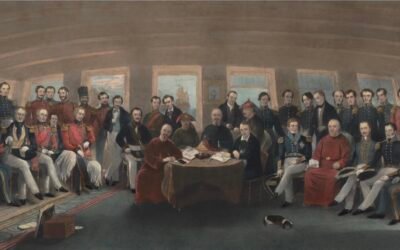A personal testimony of how an ancient teaching can change lives—and empower disciples to resist decades of injustice.
by Eileen Ho*
*A paper presented at the session “Religious Liberty in Taiwan: From the Martial Law to the Tai Ji Men Case” of the Eighth Annual Conference of the European Academy of Religion, Vienna, Austria, July 11, 2025.
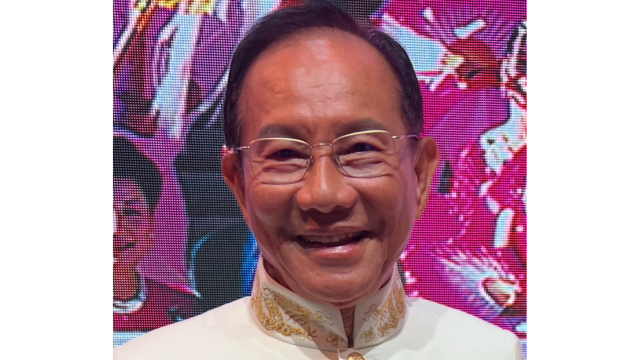
I.The Gate of Infinite Wonders: Tai Ji Men
The title of my paper emphasizes that my perspective on Tai Ji Men and its legal-tax case is emic, coming from the standpoint of a practitioner rather than an external scholarly observer.
In 1966, Dr. Hong Tao-Tze, the current Grand Master of Tai Ji Men, founded the Tai Ji Men Qigong Academy, which began to warmly welcome a large number of disciples. The academy offers not only a rich tradition of Eastern philosophy but also teachings about the very origin of the universe and the laws of nature. By opening this gateway, people everywhere can connect with their hearts and souls, discovering the true meaning of their lives.
While master-disciple lineages can still be found in traditional crafts and many other fields worldwide, Tai Ji Men’s millennium-old tradition of inner cultivation and spiritual practice is genuinely unique. From ancient times to the present, it has depended on master-disciple transmission to pass down humanity’s highest philosophical insights and advanced methods for nurturing the heart from one generation to the next.
When I was one year old, my parents brought my older sister, younger sister, and me into the Tai Ji Men family. I began my training at the age of seven, and from that moment, I studied this precious ancient tradition under my master’s guidance. Before I knew it, I had opened the gate to the depths of my own heart and soul.
II.The Five Poisons of the Human Heart—Doubt and Belief
An old Cherokee proverb tells the story of two wolves, one white and one black, fighting in each person’s heart: one represents anger and hatred, while the other symbolizes generosity and compassion. A child asks his grandfather, “Which wolf will win?” The grandfather replies, “The one we feed.”
This story, with its contrasting wolves standing for the light and darkness within us, teaches the importance of nurturing the good wolf and confining the bad one. However, through the yin-yang philosophy that my Shifu taught me, I learned not to lock away the black wolf but to release it, observe it, understand it, and tame it. I discovered the origins of my darkness, learning what shapes my daily thoughts and intentions. By bravely facing my inner shadows and correcting my faults day by day, I gradually grew more confident in myself. In doing so, my soul became purer, and I found the path to returning to my heavenly home.
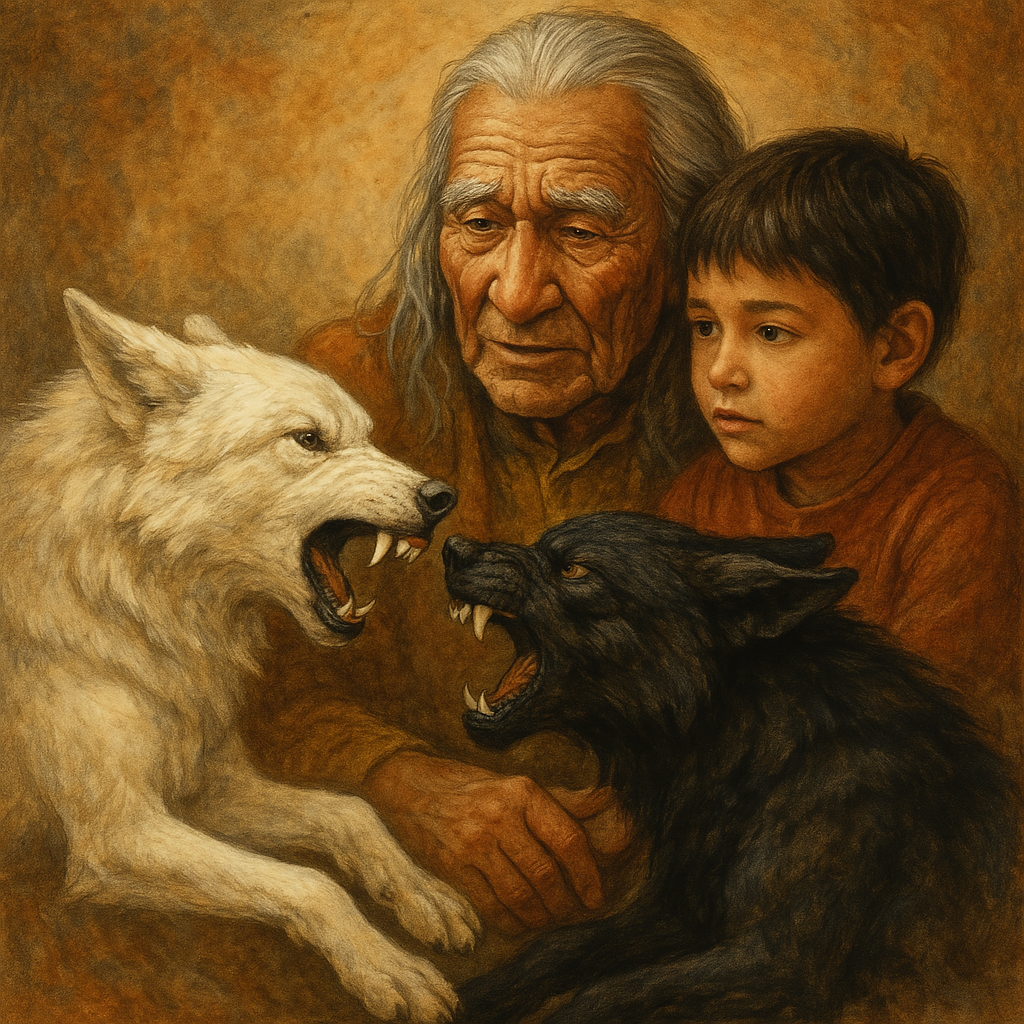
I went beyond merely learning to face my inner darkness; I began recognizing the “five poisons” and the “seven emotions and six desires” that linger in human nature. Tai Ji Men provides concrete practices to cultivate the heart. In 2023, I played the role of “Doubt” in Tai Ji Men’s original allegorical stage play, “Back to the Origin.” This character symbolizes how excessive suspicion and distrust isolate us, alienating our friends and family, eroding our faith in others and ourselves, and leading us into a world where truth and falsehood blur, obscured by darkness.
Our performance was not just acting; we brought our inner doubts to the stage. I confronted my suspicion, felt it, and understood it in that process. I realized that leading a life steeped in doubt is like wandering through a dense, black forest of mist, where nothing is clear and we lose our sense of direction. We find ourselves entangled in a false world born from our fears. I understood that doubting others often starts with doubting ourselves—questioning our ability to improve, self-worth, and capacity for forgiveness, as well as whether life’s challenges can offer us opportunities to learn and grow. After the performance, I stopped wandering in self-doubt and trusted myself, facing each day’s challenges with courage and resolve.
This experience deepened my understanding of how lingering doubts from Taiwan’s post-authoritarian era have wounded our freedom of belief. The Tai Ji Men case originated as part of a government “cleaning” initiative following an election, a purge that ensnared many faith communities under the guise of combating “fraud.”
Through media defamation and fabricated charges, the government dismantled several Taiwanese religious communities. By labeling faith as superstition and “cultism,” it sowed doubt in the hearts of the people, portraying itself as the righteous authority while undermining the citizens’ confidence in their beliefs. This, in turn, increased dependence on authoritarian rule.
To this day, the invisible scars from that religious purge remain unhealed. The government’s ability to defame religion acts like a hidden blade, trapping people in perpetual doubt and eroding interpersonal trust. While Taiwan’s religious landscape may appear diverse and thriving, accusations of “cultism,” superstition, and profiteering are rampant, especially among younger generations, where faith is often equated with backwardness and invites social exclusion. Non-believers mock and vilify the faithful out of ignorance, different religions clash with one another, and the fear of being branded a “cultic” outsider stifles those who yearn for spiritual awakening.
Every heart needs a guiding light of faith. What kind of world awaits us if we lose belief in our capacity to improve and cannot overcome our faults or the power of negativity? Are we still fully human? Despite the marvels of our age—AI, space travel, and other technological triumphs—we see endless conflict, wars erupting, natural disasters recurring, and daily headlines filled with shocking crimes. Humanity’s confusion cries out for the stability that faith provides, yet that very light is fading and must be protected, cherished, and defended.
In March, Tai Ji Men’s Shifu led a goodwill delegation to Saudi Arabia, and I was among the participants. Under the strict system in Saudi Arabia, faith is safeguarded: people pray five times daily and observe religious regulations. Although the system is often criticized, I also saw some advantages. Beyond family harmony, cultural richness, and communal well-being, the greatest human blessing is the protection of faith, which allows us, in this finite life, to learn, reflect, do good, and atone for our mistakes, fulfilling our spiritual lessons. Our social institutions focus primarily on living and earning; only what remains of our time is set aside for personal cultivation. I wondered whether our social structures help us complete life’s tasks. Witnessing faith safeguarded firsthand, I reflected on why faith is the most fundamental human treasure: the fullness of life is the greatest wealth and joy.
In 2023, Tai Ji Men opened two new academies in the United States and another in Toronto, Canada this year. Our Shifu encouraged us to share our experiences so that more kindred spirits can transform their lives. Yet, even as we spread the word, I realized my journey of doubt is incomplete—I still live in the shadow of the Tai Ji Men case and the media slander, and I am afraid of others’ whispers and stares. So, I vowed to myself that from this day on, I will live in a world of belief, not doubt, regardless of how others may question me or my faith. This is the path that every spiritual practitioner and believer must walk: a trial of faith. After passing through the crucible of doubt, what Tai Ji Men masters and disciples ultimately embody is belief.

III.In the Name of Love
I was about three years old when the great catastrophe struck Tai Ji Men. At that age, I was too young to understand what was happening, and it was not until middle school that I became part of the 29-year journey toward vindication. When I was around 15, I protested in front of the Presidential Office, and as a college student, I voiced my stance on the streets and petitioned the Control Yuan. Those ten years were unlike any ordinary youth experience. Through it all, I learned from my Shifu and his late wife (Shimu) that we must never harbor hatred in our hearts— we can change the world with love and positivity. However, I only grasped the surface meaning for many years and not the proper depth.
Over the years at Tai Ji Men, I observed my Shifu and Shimu lead disciples on cultural tours worldwide. This was a regular part of my life and my aspirations. Last year, as I watched their travel highlights once more, tears streamed down my face. Even as they spread love and peace across all five continents, the legal battles continued. Yet, in my senior disciples’ eyes, I saw no trace of hatred or anger—only genuine, radiant smiles. It was only as an adult, once I embarked on this path myself, that I truly understood how difficult it is to uphold one’s faith, to choose forgiveness, and to embody love.
Those bright smiles, that spacious generosity, that warmth—they passed a torch to me. I understood why our Shifu continues to fight for our cause.
Authoritarianism and democracy—like the two wolves—represent darkness and light. Beyond defending our spiritual school’s reputation, we stand for justice and righteousness. This ordeal has exposed Taiwan’s administrative disregard for the law, its corrupted fiscal system, and the failure of bureaucrats to prioritize the people. Even if the Tai Ji Men case is resolved, if the government continues to wield law and taxation as tools to torment its citizens, then the people of Taiwan will remain under the shadow of human rights violations. Only by upholding the truth, through education, sharing, and the call of conscience, can a community ensure a just understanding of law, taxation, and human rights, thus preventing unnecessary suffering.
This is the conviction of my generation. The bitter struggles of Tai Ji Men found resolution when the Supreme Court declared Tai Ji Men innocent in 2007. However, the unjust tax case continued. Only when the ideals of tax justice and freedom of belief flourish will we see truly meaningful results.
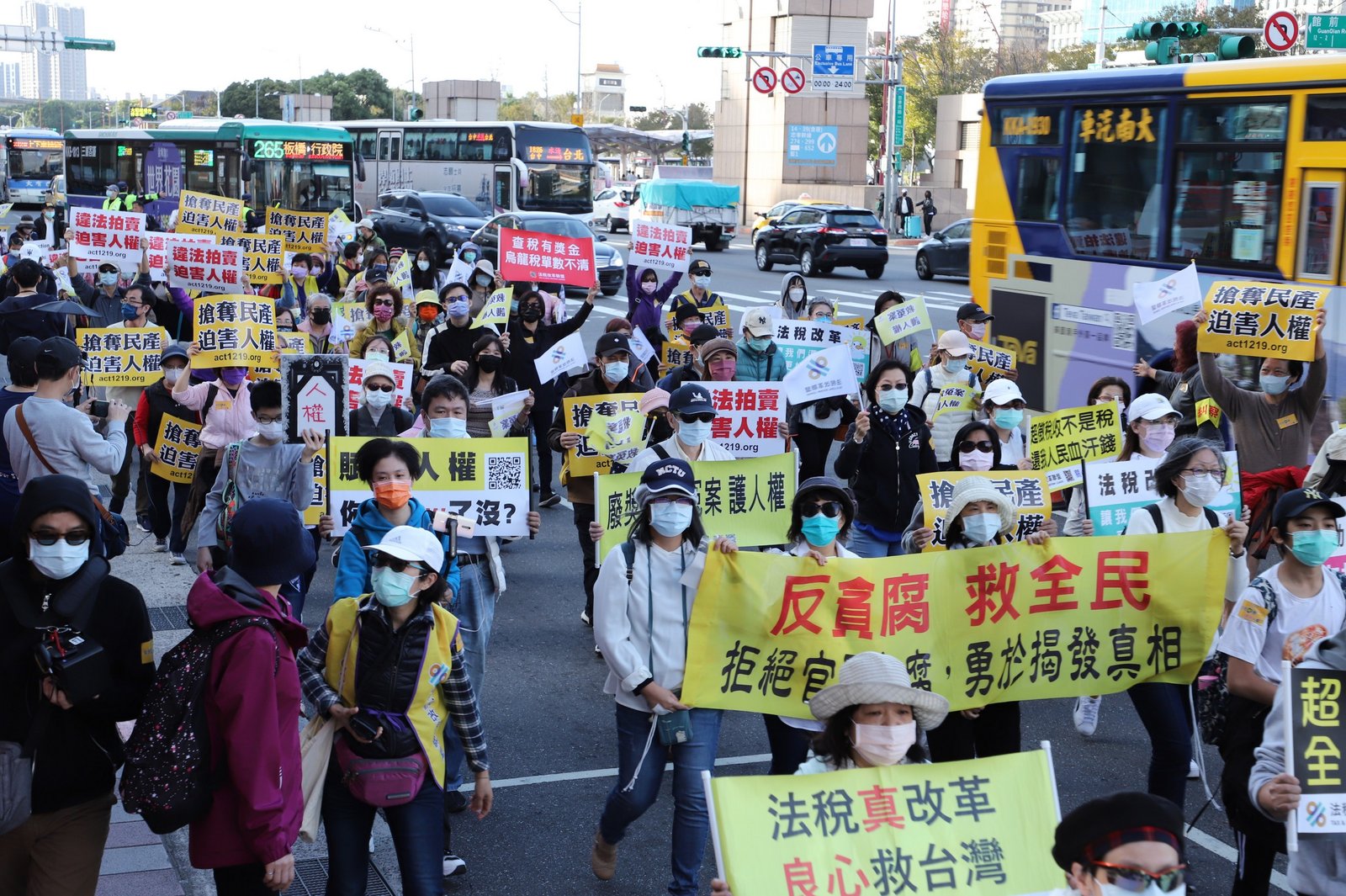
IV.Roses Blooming in a Bitter Winter
The title “Roses Blooming in a Bitter Winter” reflects my experiences pursuing justice and freedom of belief.
Tai Ji Men dizi (disciples) have diligently sought justice through peaceful and rational means for nearly thirty years. Not only Tai Ji Men, but all groups facing persecution for their faith, along with the scholars, experts, and righteous individuals who support them, are like seeds lying dormant beneath deep snow, enduring countless cold nights until they finally burst forth with life. When we speak out and act, we become the warming sun that melts the frost. We help the seven billion people on this planet keep the flame of hope alive—including hope for freedom of belief, whether they have faith or may one day choose to pursue it.
Let us all strive to be that warming sun: understanding and helping one another. Let us firmly trust in our beliefs, defend justice and truth, and become the roses that bloom in the bitter winter.
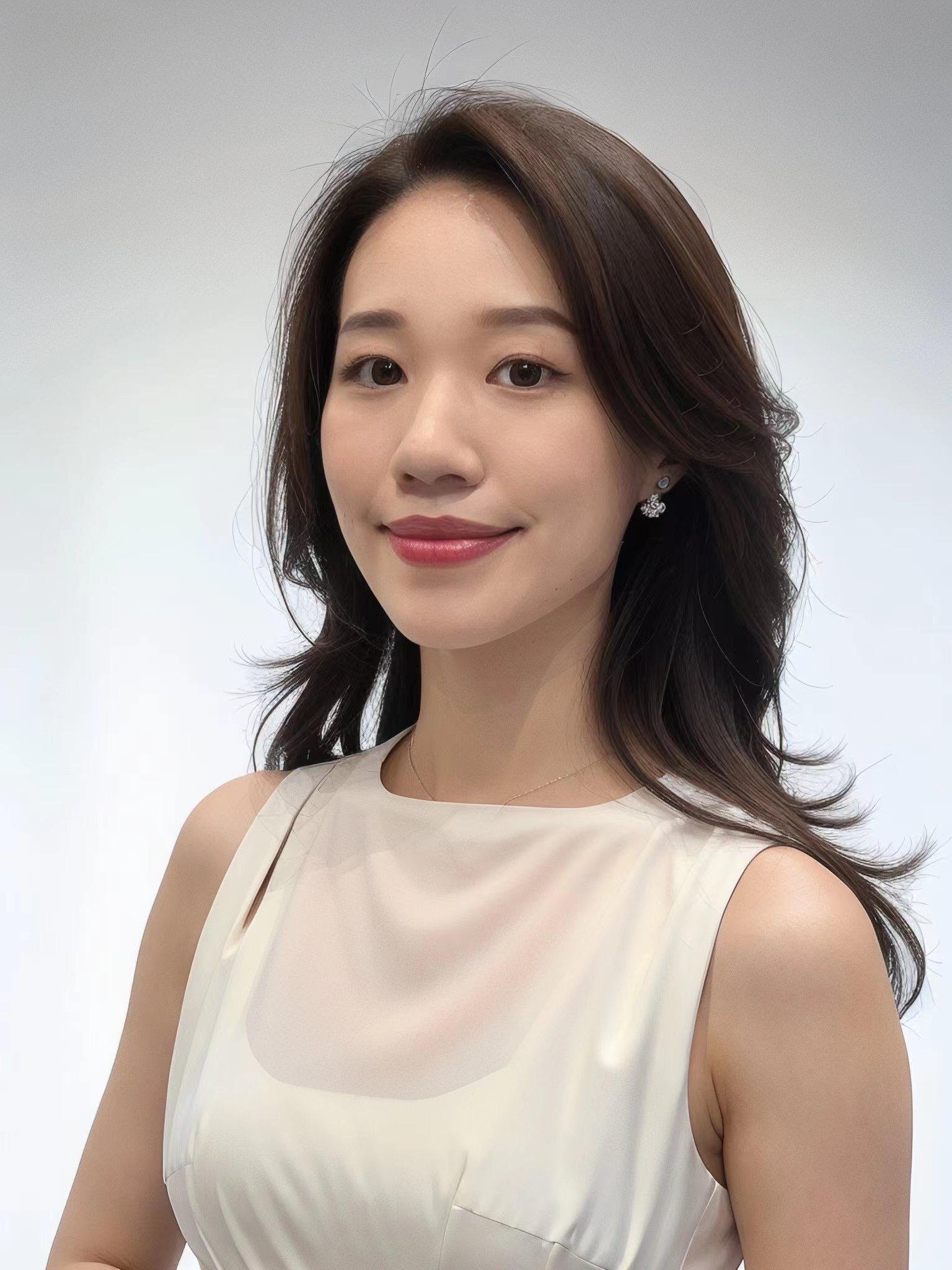
Eileen Ho earned a BFA in Fine Arts at Taipei’s Chinese Culture University (PCCU). She is a marketing designer and AI-assisted visual development artist.

